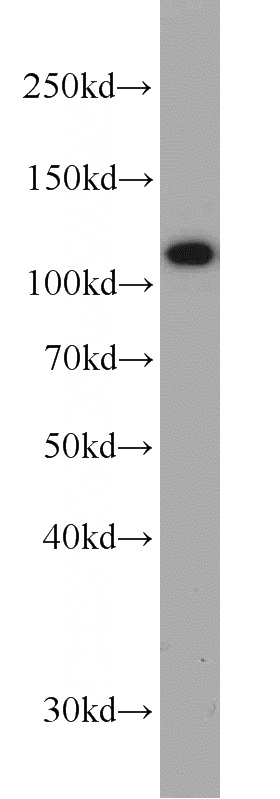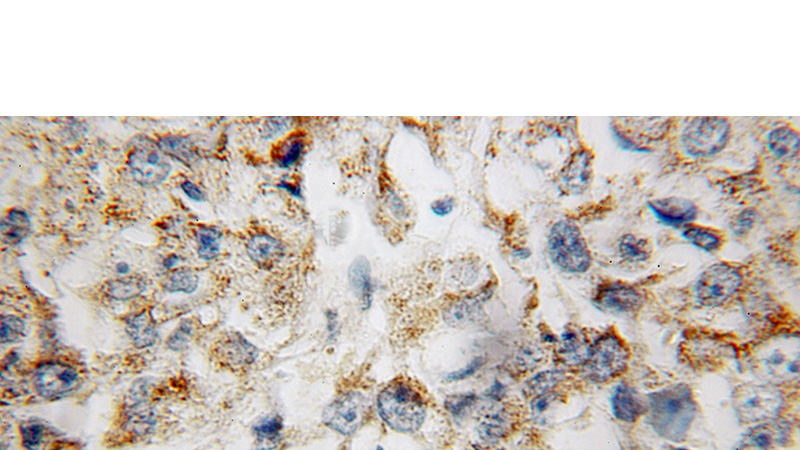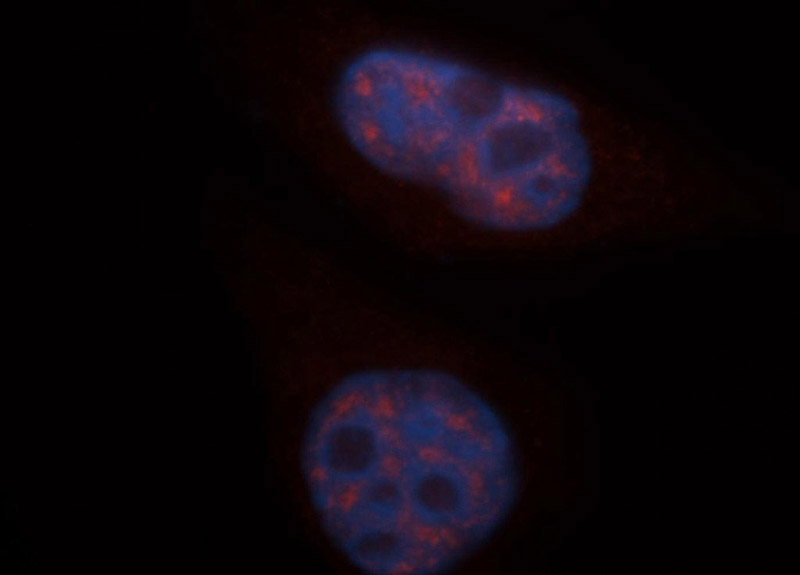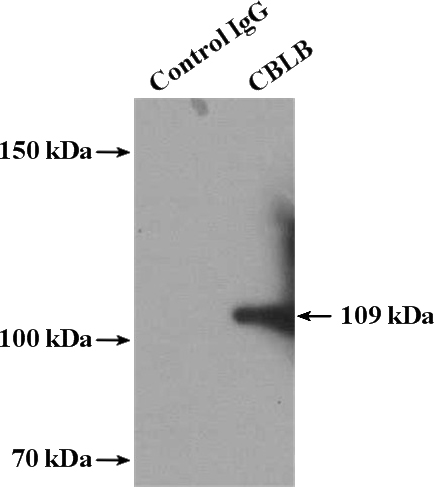-
Product Name
CBLB antibody
- Documents
-
Description
CBLB Rabbit Polyclonal antibody. Positive IF detected in HepG2 cells. Positive IHC detected in human lung cancer tissue, human kidney tissue, human lung tissue, human placenta tissue, human spleen tissue, human testis tissue, mouse colon tissue. Positive IP detected in HEK-293 cells. Positive WB detected in HEK-293 cells, A549 cells. Observed molecular weight by Western-blot: 109 kDa
-
Tested applications
ELISA, WB, IHC, IF, IP
-
Species reactivity
Human,Mouse,Rat; other species not tested.
-
Alternative names
CBLB antibody; DKFZp686J10223 antibody; DKFZp779A0729 antibody; DKFZp779F1443 antibody; FLJ36865 antibody; FLJ41152 antibody; Nbla00127 antibody; RING finger protein 56 antibody; RNF56 antibody; SH3 binding protein CBL B antibody
-
Isotype
Rabbit IgG
-
Preparation
This antibody was obtained by immunization of CBLB recombinant protein (Accession Number: XM_047449112). Purification method: Antigen affinity purified.
-
Clonality
Polyclonal
-
Formulation
PBS with 0.1% sodium azide and 50% glycerol pH 7.3.
-
Storage instructions
Store at -20℃. DO NOT ALIQUOT
-
Applications
Recommended Dilution:
WB: 1:500-1:5000
IP: 1:200-1:1000
IHC: 1:20-1:200
IF: 1:20-1:200
-
Validations

HEK-293 cells were subjected to SDS PAGE followed by western blot with Catalog No:108899(CBLB antibody) at dilution of 1:500

Immunohistochemical of paraffin-embedded human lung cancer using Catalog No:108899(CBLB antibody) at dilution of 1:100 (under 10x lens)

Immunofluorescent analysis of HepG2 cells, using CBLB antibody Catalog No:108899 at 1:50 dilution and Rhodamine-labeled goat anti-rabbit IgG (red). Blue pseudocolor = DAPI (fluorescent DNA dye).

IP Result of anti-CBLB (IP:Catalog No:108899, 4ug; Detection:Catalog No:108899 1:300) with HEK-293 cells lysate 3680ug.
-
Background
CBLB(E3 ubiquitin-protein ligase CBL-B) is also named as RNF56 ans plays a necessary role to prevent the inappropriate activation of NF-B in response to lipopolysaccharide and to polymicrobial sepsis. CBLB can be phosphorylated on tyrosine and serine residues upon TCR or BCR activation, and upon various types of cell stimulation.. It also has a crucial role in the prevention of chronic inflammation and autoimmunity. This protein has 4 isoforms produced by alternative splicing.
-
References
- Stürner KH, Borgmeyer U, Schulze C, Pless O, Martin R. A multiple sclerosis-associated variant of CBLB links genetic risk with type I IFN function. Journal of immunology (Baltimore, Md. : 1950). 193(9):4439-47. 2014.
Related Products / Services
Please note: All products are "FOR RESEARCH USE ONLY AND ARE NOT INTENDED FOR DIAGNOSTIC OR THERAPEUTIC USE"
